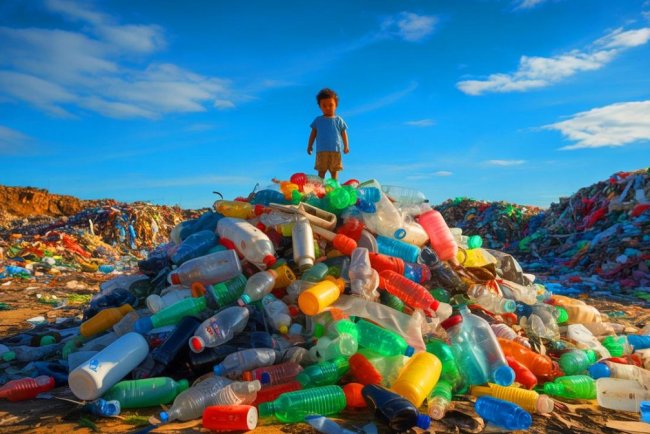India Expands Advanced Technology for Marine Conservation
India is advancing marine conservation by integrating technology, artificial reefs, and policy measures. The country is deploying satellite monitoring, coral restoration projects, and sustainable fisheries initiatives to combat climate challenges and marine pollution.

India is increasing the security of its marine and coastal life by using advanced technologies, artificial reefs, and policies. India is using satellite imaging, remote sensing technology, and unmanned underwater vehicles to track the status of the ocean and protect sea life diversity. All these efforts are directed to discourage the effects of climate change, unregulated fisheries, and maritime pollution.
Increasing Sea Surveillance with Advanced Technologies:-
The Indian government is incorporating new technologies to monitor ocean health. The Indian National Centre for Ocean Information Services (INCOIS) has placed early warning systems to identify thermal stress in coral reefs. The systems track sea surface temperature, salinity, and water quality and provide real-time information that aids conservation efforts.
The use of unmanned underwater vehicles and remote sensing technology assists in the identification of illegal fishing practices and tracking coral reef damage. The utilization of satellite imagery is the door to tracking environmental changes and enhancing response efforts.
Artificial Reefs and Coral Restoration Programs:-
For increased sea biodiversity and sustainable fishing, India is introducing artificial reefs along its coast. The Department of Fisheries sanctioned 937 artificial reef units in 11 coastal states and Union Territories under the Pradhan Mantri Matsya Sampada Yojana scheme. The scheme, supported by an investment of ₹176.81 crore ($21.3 million), will provide a habitat for marine life and maintain fish stock sustainability.
Another vital sector of activity is coral rehabilitation, to be undertaken by the Zoological Survey of India. The nation has completed its largest ever coral transplantation project, rolling out more than 16,500 corals in Gujarat's Narara. Another 2,000 artificial reef modules were rolled out to facilitate long-term conservation and sustainability of the habitat.
Marine Plastic Pollution is being fought back:-
India is fighting the rising menace of plastic waste in oceans by becoming a member of the GloLitter Partnership program of the International Maritime Organization. The program, created in association with the Food and Agriculture Organization, will fight plastic waste from shipping and fisheries industries.
A national task force has been appointed to undertake steps that reduce plastic pollution from the sea. The action plan includes minimizing waste from fishing, encouraging biodegradable alternatives, and imposing stricter regulations on plastic dumping.
Encouraging Sustainable Fisheries and Climate Resilience:-
India Fishery Survey is investigating the effects of climate change on the marine ecosystem. Temperature variations in seas influence fish stock and biodiversity, and there is a necessity to innovate climate-resilient fishing techniques. Fisher communities are being trained to adopt sustainable fishing techniques so that they are able to provide long-term productivity.
Research organizations like the CSIR-National Institute of Oceanography, National Institute of Ocean Technology, and Central Marine Fisheries Research Institute are engaged in climate-resilient technology. The technology is aimed at assisting conservation and enabling coastal communities to cope with fluctuating marine conditions.
Conclusion
India's approach to marine conservation integrates cutting-edge technology, artificial reef structures, and policy reforms for safeguarding marine life. India's policies emphasize ocean health monitoring, coral reef restoration, marine pollution cleanup, and promoting sustainable fisheries. All these measures are required for preserving biodiversity and the long-term sustainability of India's marine and coast resources.
Source: Government of India, Ministry of Environment, Forest and Climate Change
What's Your Reaction?

















